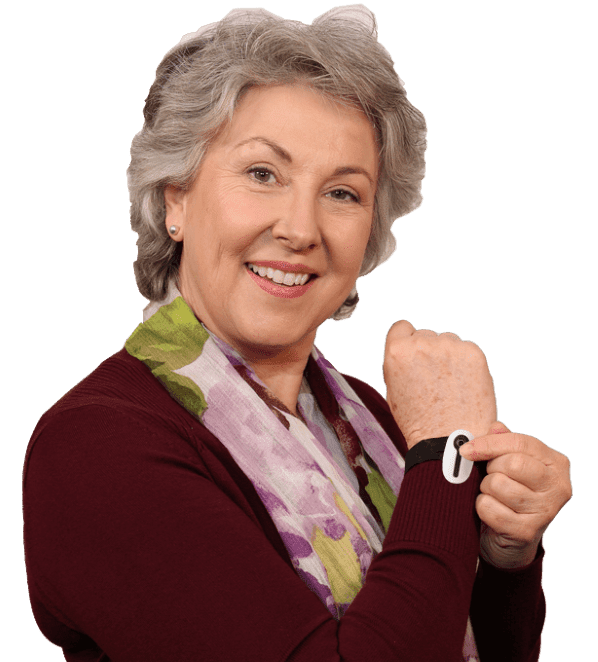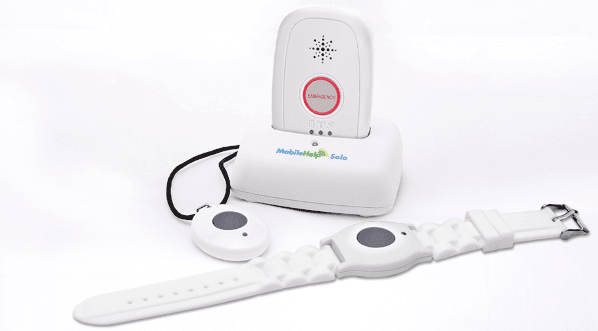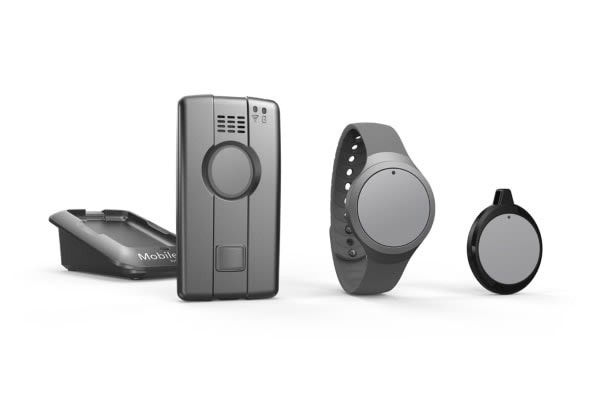As a child to an aging parent you’ll naturally be concerned about mom or dad’s safety and health. Social distancing only compounds this problem, as we all struggle with how to ensure the safety of those at higher risk of contracting the virus while at the same time understanding that our very exposure to them could put them at risk. And to add to the challenge, some of our parents may not want to talk about or face these facts.
A medical alert device is an effective method to ensure that if something should happen, they’ll have a convenient way to alert you and/or the emergency services. However, suggesting to an elderly person that they should get a medical alert device can be a tricky feat. There will likely be a knee-jerk opposition, claiming it’s not something they need. It’s therefore important to approach the conversation in a soft and sensitive manner, and bring up the many advantages of a medical alert device.
Argue the Case for a Medical Alert Device
The ideal living situation for aging parents or anyone elderly is to have a partner to support them through this difficult period. However, often individuals are left living alone and potentially vulnerable. It’s natural that family and friends will be concerned and want to put a safety net in place for emergency situations. A medical alert device is a small and hardly detectable resource that elderly people can carry around with them. With a button to push or a sensor that can detect a fall, a GPS will be automatically activated and appropriate emergency services will be able to locate your loved one.
When talking to an elderly person about a medical device, they might immediately interpret this as you telling them they need help, or doubting they can live an independent life. In fact, the opposite is true — medical alert devices are actually an effective way for an elderly person to maintain his/her independence. Instead of having a carer move in, or indeed moving to a care home, a medical device could be all it takes to ensure an individual's safety. Another important point to mention is that if anything should happen and they are wearing their alert device, they’ll be able to access emergency help quickly. This gives them a higher chance of eventually getting back into an independent living situation. Medical alert devices are discreet and can be worn around the neck like a necklace (which fits nicely under a shirt), or clipped onto a belt —nobody will know they are wearing it. They are waterproof and don’t interfere with pacemakers. It’s also extremely affordable and can cost as little as $10 monthly—with companies such as Medical Guardian, so this simple and effective device won’t be breaking anybody’s bank account.
How to Approach the Subject with Your Loved One
So you’re ready to bring up the subject of a medical system device, but not sure how the other person will take it? After all, the topic of safety and the future can be a scary conversation for both sides.
Let the Conversation Arise Naturally
There’s no need to create an intervention, or even bring it up the topic straight away. Let the conversation arise naturally, and if it doesn’t happen the first time around, wait until a suitable occasion when you and your loved one are in the right frame of mind. Once you do approach the subject, be sure to listen — even if there is some initial protesting from the other side. When your parent or loved one feels they are being listened to, they’ll be more likely to take on board your point of view. It’s natural for an elderly individual to get a little upset the first time something new is discussed. What’s important to keep reminding them is about the obvious benefits they can gain from a medical alert device.
Put Yourself in Their Shoes
Growing old is inevitable and each one of us will be in same position one day. It’s important we all put ourselves in the shoes of the elderly and reflect on how difficult it must be for them. We must be compassionate, empathetic and respectful when we talk to them— especially about the sensitive topic of their independence and potential safety. Be prepared that your conversation might not necessarily go to plan, but don’t get impatient. Speak softly and calmly and show you genuinely care about their safety. As long as you don’t approach the subject from an threatening angle, your parent or loved one won’t get agitated.
Comfortable and Easy-to-Hide Devices
If your loved one is concerned about the device showing, here are a number of devices that can be hidden around your neck or on your wrist.
1. Medical Guardian's Medical Alert Button

- 1,300 foot coverage range
- Waterproof
This button by Medical Guardian is wearable,waterproof, and lightweight, and you can wear it either as a pendant or a wristband.
2. MobileHelp's Solo Device

- Works inside and outside the home
- Waterproof
When you purchase MobileHelp's Solo device, you choose between a small wearable watch or pendant to go around your neck. The device is also compatible with MobileHelp's Fall Detection Button.
3. Medical Alert's MobileElite On-the-Go Device

- Lightweight
- Simple setup
This device by Medical Alert has a new design that comes with an interchangeable neck pendant and wrist watch, so you don't have to use only one type exclusively.
You’re convinced that a medical alert device will considerably raise the standard of living of your parent or loved one. However, that doesn’t necessarily mean they’ll be on the same page. It’s important to make no assumptions and to introduce the subject sensitively, all while understanding their hesitancy. Meanwhile, the most useful thing for you to do is thoroughly research the topic and the various devices on offer. So when it finally comes down to talking about the subject, you’ll be ready for their arguments and be able to alleviate their concerns.
